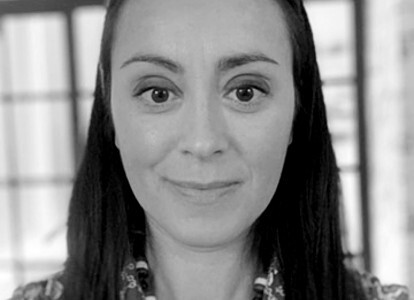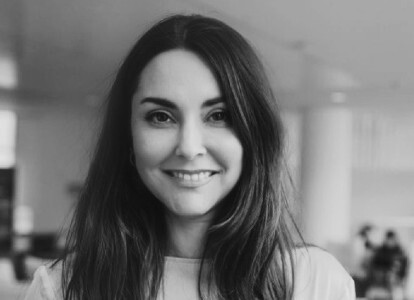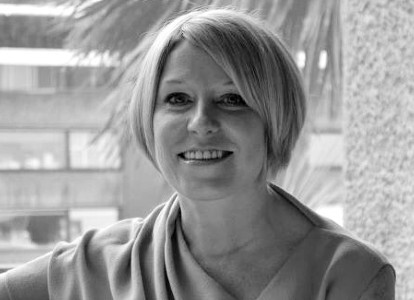
Seasoned comms professional and half-Italian home chef extraordinaire Stephanie Holmes was, until recently, interim Director of Corporate Affairs and Communications at plant-based food manufacturer Upfield (owner of iconic brands like Flora and Proactiv). Stephanie spent many years as a BBC broadcast journalist and producer before making a pivotal leap into PR, joining the world’s largest food and beverage company, Nestlé, and subsequently working within pharma and construction. Whilst enjoying some free time to cook up a storm in the kitchen, she is now considering her next challenge.
With a unique perspective honed through her journalism background, Stephanie shares how the skills of storytelling have been helpful throughout her corporate communications career. She outlines the challenges and rewards of working in both listed and non-listed businesses, and the secrets to fostering strong relationships with CEOs.
“Every organisation has amazing stories, personalities and innovations within it - you just have to find them”, says Stephanie about bringing a company’s narrative to life, so it’s no wonder her answers to our interview questions are such a great read!
1. During your early career you worked in some exciting broadcast journalist, presenter and producer roles before making the move to PR. What led you to the big decision to change industries?
It had always been my goal to return to communications after journalism as, in my mid-twenties, I’d worked in a communications role at the United Nations Food and Agriculture Organization in Italy. It opened my eyes to an industry that was close to but separate from journalism and I really enjoyed it. I'd loved being “on the inside” of an international organisation that I’d covered as a journalist, predicting how messages would land and pitching, often to my former colleagues. When, much later and after a decade at the BBC, a chance to actually make that shift came up and join Nestle's media relations team in Switzerland, I jumped at it.
2. How did your broadcast experiences help to prepare you for your subsequent corporate communications roles?
I’d say that an understanding of how a newsroom operates and the news agenda is shaped has been invaluable, as well as writing and editorial skills which can, of course, be used for everything from speechwriting to Annual Reports. And speaking the same language as journalists – knowing what works for them and understanding their deadlines - helps you achieve the positive coverage we all need. But more than that, as organisations increasingly seek to improve the quality of content across their owned platforms and social channels, journalism gives you an understanding of what great storytelling looks like and how to create it.
3. Having worked for listed and non-listed businesses, do you have a preference?
They have both been fascinating, with different challenges and priorities but the former journalist in me has a preference for the transparency, openness and rigour that comes with being a listed firm, in terms of obligations to disclose and publish. Of course, this isn’t always easy from a communications perspective – a single number around gender balance in the construction industry, for example, won’t tell the whole story of what a company and sector is doing to tackle matters but it does help ensure that issues are being actively addressed.
4. As you have worked closely with CEOs, can you share your advice for building a good working relationship?
Really understand what their priorities are and get to know the business or organisation inside out - its areas of weakness, risk or exposure especially, as these are where crises and issues are more likely to arise and you need to be ready for them in advance. Be able to explain, illustrate and demonstrate the business value of communications and PR, not just from a reputation perspective, or in a crisis but for helping to win business, for recruitment and retention, employee engagement and for illustrating how the company's purpose and goals are put into practice. Your role is to help them understand how things will be perceived by different audiences - the many stakeholders, each with their own priorities - and to advise them accordingly, with the overarching of goal of recommending what is best for the business or organisation, not necessarily what is easiest. You have to build trust in the relationship and this comes from having the courage to challenge them, and knowing when to do so.
5. It’s clear from chatting to you that you are great at making a company’s narrative more sophisticated. How have you gone about this?
Every organisation has amazing stories, personalities and innovations within it - you just have to find them. These are the narratives that bring lofty-sounding purpose statements to life. And on purpose statements themselves, I'd say while they are essential for distilling the goals of a business and creating a common ethos, and they work very well for internal and financial audiences, for the media you need to approach through a side door, through a concrete project, product or idea that puts the purpose statement into practice.
6. What’s most important to you at this point in your career?
I'm still working that one out! I like to keep learning and growing so an environment where I can continue to do that is essential, and of course, an organisation or company that seeks to change things for the better, whether that's encouraging people to change their diets and adopt more plant-based foods, or innovating in how we build our homes to make them more sustainable, will always be fascinating.
7. What is your most memorable work moment?
Getting CNBC to anchor an entire business programme live from the Nestle HQ on Results day was very exciting. It was a first for them, pretty high profile and of course we were nervous about things going wrong but they didn't. It's also very satisfying when a new corporate website or film finally goes live - months in the making and a whole team of very different people - creatives, content experts and web designers and builders - all burrowing away behind the scenes to make it happen.
8. What would you say are your three key attributes that have contributed to your career success?
Curiosity, resilience and energy.
9. What or who inspires you, and why?
My husband is a Deputy Headmaster so he works in a completely different field, dealing with children, parents and families on a daily basis. His incredible emotional intelligence, patience and calm I find inspiring (and also mystifying!).
10. Do you have any hidden talents?
It's not really a hidden talent but nothing relaxes me more than cooking up a storm in the kitchen. I'm half-Italian and I absolutely love trying out recipes I've seen on Instagram, I find it really relaxing to get into the flow. And then, of course, you get to eat your creations at the end of it...
Thank you, Stephanie!
For a free download of our full Annual Salary Guide 2023, click here.
Time for a change? Check out our latest jobs!
The Works Search: a search consultancy specialising in PR and corporate communications. We have unrivalled matching abilities and are known for finding the top 5% performers in the industry - the ones who deliver and make your reputation great. For more advice or market insights, do get in touch with us on 0207 903 9291 or email: sarah@the-works.co.uk.


